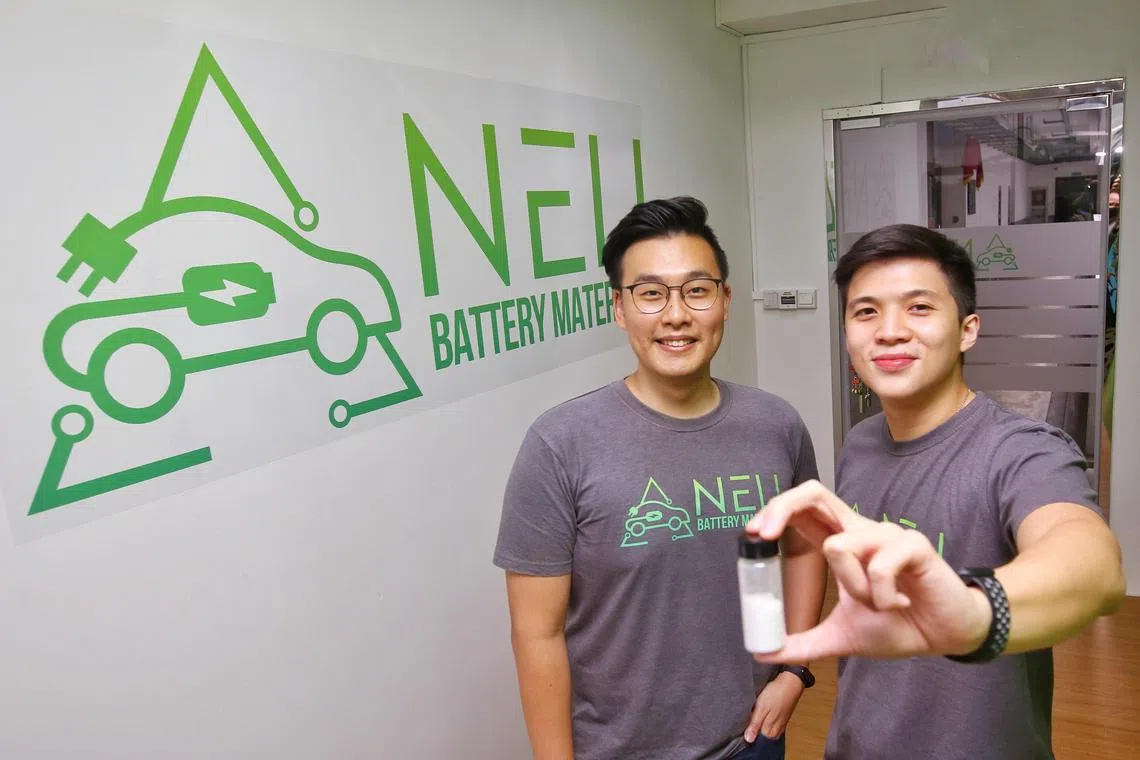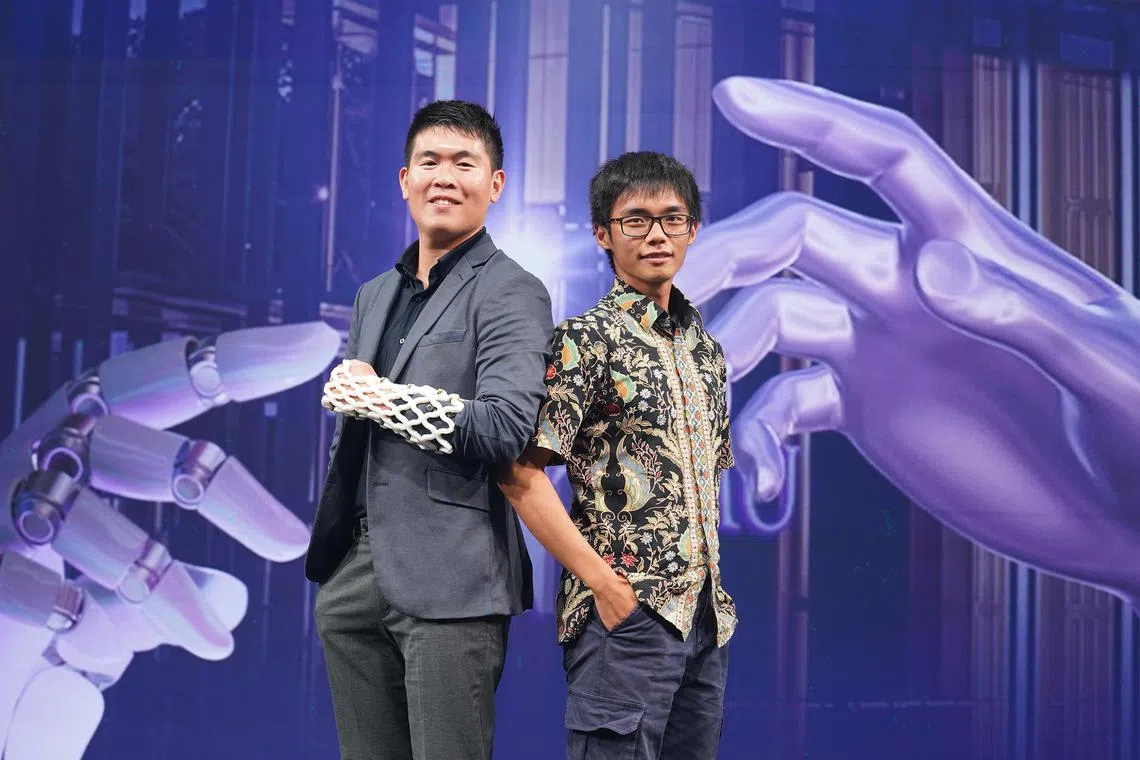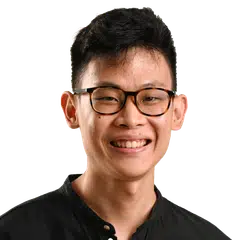Start-ups create innovative solutions in sustainability and healthcare
Sign up now: Get ST's newsletters delivered to your inbox

Neu Battery Materials co-founders Bryan Oh (left) and Kenneth Palmer. The start-up developed a lithium battery recycling using electrochemical separation.
PHOTO: LIANHE ZAOBAO FILE
SINGAPORE - A Singapore start-up has developed cutting-edge technology that can extract lithium from old iPhones that manufacturers can then recycle into batteries for electric vehicles (EV).
Neu Battery Materials – one of the winners in the 2023 Lee Kuan Yew Global Business Plan Competition that was held here this week – developed the world’s first patented lithium battery recycling using electrochemical separation.
It claims that its technology is 100 times less polluting and up to 10 times more profitable than other methods of recycling lithium from batteries, which otherwise would end up in landfills leaking toxins.
Founder and chief executive Bryan Oh said: “The whole concept of electric vehicles is to reduce pollution and drive clean energy to solve climate change.
“But we need to look at what happens at the end. A lot of people from the industry need a solution like ours so that they can actually complete the value chain.”
Neu Battery Materials scooped a cash prize of $75,000, among other perks, when the winners of the biennial Lee Kuan Yew Global Business Plan Competition organised by the Singapore Management University were announced on Thursday.
Medea Biopharma, a German firm that develops eco-friendly antibacterial solutions for industries such as healthcare and agriculture, won in the category of pre-revenue start-ups.
Fellow German company PlasticFri, which turns agricultural waste into eco-friendly products such as cups and straws to replace plastics, won in the segment for revenue-generating start-ups.
Both firms won $100,000 in cash and $75,000 in-kind prizes each.
This year’s competition attracted 1,000 entries from 1,100 universities in 77 countries, with projects relating to healthcare and environmental sustainability.
Singapore start-up Castomize, which was one of the eight finalists, used 4D-printing technologies to create custom medical devices to make healthcare more accessible, effective and less invasive.
Its first device is a series of orthopaedic casts that can be custom-fitted to suit a patient.
Co-founder Abel Teo said the start-up hopes to apply its proprietary technology to other industries beyond the medical.
“In healthcare, it could be used for blood vessel stents and precision drug delivery mechanisms. Beyond that, it could also be used in construction and eyewear,” he added.

Mr Abel Teo (left) and Mr Johannes Sunarko, co-founders of Castomize.
PHOTO: SMU
Speaking at the competition opening ceremony on Monday, Deputy Prime Minister Heng Swee Keat said that Singapore can be a trusted node for science, technology and innovation
Mr Heng, who is also Coordinating Minister for Economic Policies, said that if start-ups can develop sound prototypes and solutions, they can conduct trials in Singapore and demonstrate their feasibility in an urban environment.
“The world’s population is concentrated in cities. I hope that these solutions can be deployed at scale in Asia and globally,” Mr Heng added.



